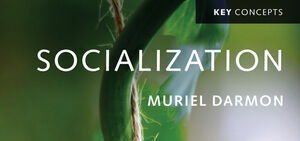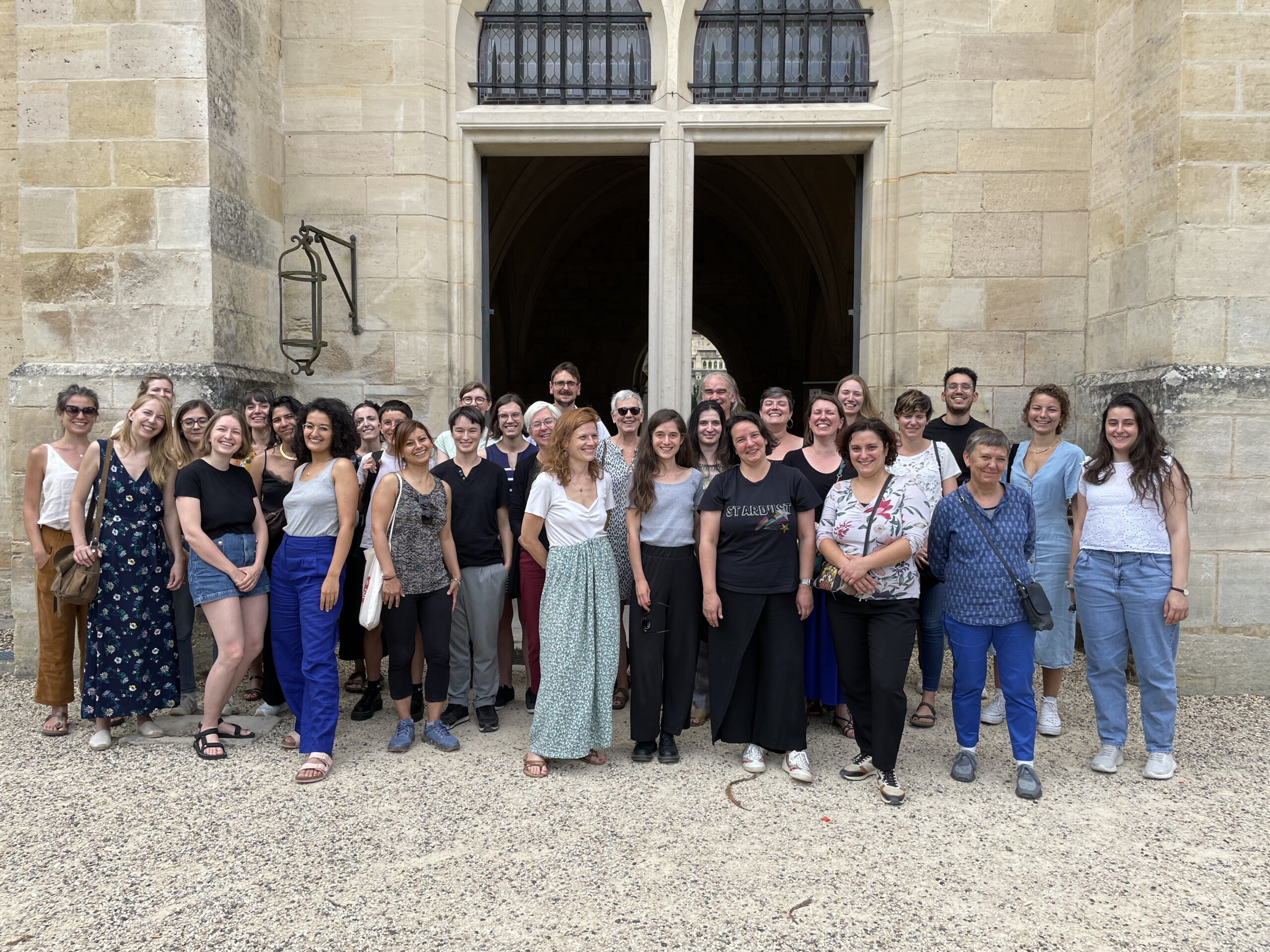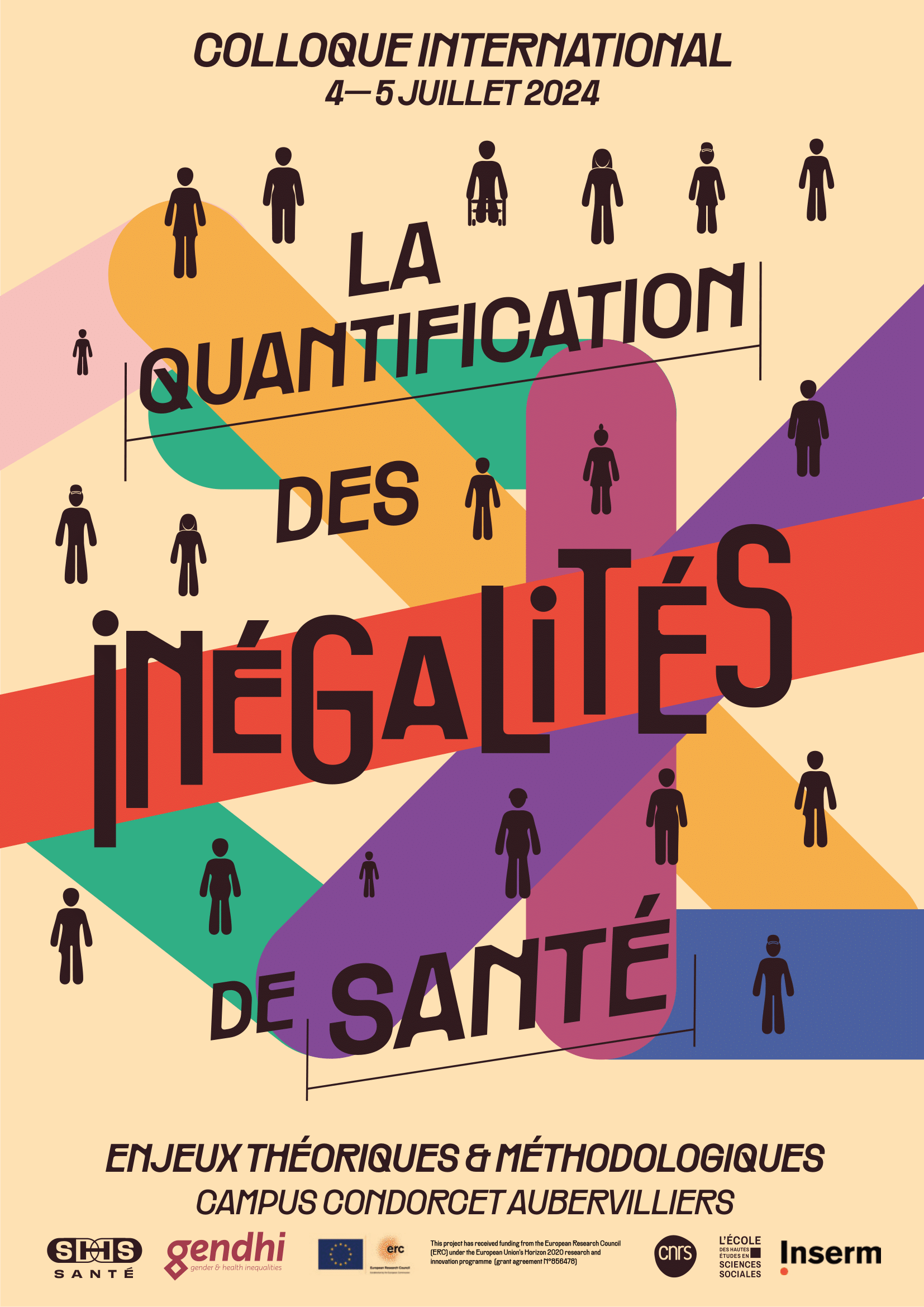 Jobs30/04/2025
Jobs30/04/2025Post-doctorate ‘Colorectal cancer screening and preventive attitudes’ (M/F)
Read more...Deadline for Application: 21/05/2025
General Information
Workplace: Paris 06 (CESSP laboratory ((UMR 8209 / CNRS, EHESS, Paris 1))
Type of contract: Researcher in FTC 22 months - full time
Expected date of employment: September 1st, 2025
Salary:... Jobs30/04/2025
Jobs30/04/2025Post-doctorate ‘Ordinary appropriation of knowledge about depression’ (M/F)
Read more...Deadline for Application: 21/05/2025
General Information
Workplace: Paris 06 (CESSP laboratory ((UMR 8209 / CNRS, EHESS, Paris 1))
Type of contract: Researcher in FTC 22 months - full time
Expected date of employment: September 1st, 2025
Salary:... Jobs15/01/2025
Jobs15/01/2025Postdoctoral researcher ‘European Social Survey’
Read more...Deadline for Application: 21/02/2025
General Information
Workplace : Paris School of Economics - 48 boulevard Jourdan (Paris 14th)
Scientific supervisor : Pierre-Yves Geoffard
Contract : CDDU 24 months - full time
Starting date: As soon as possi... Jobs03/05/2024
Jobs03/05/2024Postdoctoral Fellow “Aging and Cognitive Decline”
Read more...Deadline for Application: 22/03/2024
General Information
Workplace: PARIS 06
Scientific Supervisors: Muriel Darmon
Contract Type: Fixed-term contract (CDD)
Contract Duration: 24 months
Contract Start Date: September 2024
Workload: Full-time
...
 Publications19/02/2024
Publications19/02/2024From intentions to practices: what drove people to get the COVID-19 vaccine? Findings from the French longitudinal socioepidemiological cohort survey (2023)
Read more...Abstract:
Objective
In many countries, before COVID-19 vaccines became available, reluctance to get vaccinated was particularly prevalent among women, the most disadvantaged social groups and ethnoracial minorities, known to be at higher risk fo
...
 News14/02/2024
News14/02/2024Gendhi Scientific Advisory Board Meeting – January 25 and 26, 2024
Read more...The Gendhi Scientific Advisory Board met for the first time on Thursday, January 25th and Friday, January 26th, 2024 at the Paris School of Economics, in the presence of the Gendhi team.
It is composed of:
- Corey Abramson, Associate Professor
...
 Publications18/12/2023
Publications18/12/2023Publication – Socialization (2023)
Read more...Muriel Darmon's book "La Socialisation" has been translated into English.
Abstract:
How does society form and transform individuals? Sociology has been asking this question since its inception and “socialization” has been analyzed from diff
...

 Publications25/09/2023
Publications25/09/2023Analysing hypertension in France : A call for an intersectional approach of the cascade of care (2023)
Read more...Abstract:
In metropolitan France, estimates suggest that more than one in three adults has hypertension. Low-cost treatments are available, yet fewer than one in four hypertensive adults has a controlled level of hypertension below 140/90 mmHg.
...
 News12/09/2023
News12/09/2023The Gendhi team reunited at Royaumont!
Read more...For its first edition, the Gendhi residential seminar brought together the entire team (PhD students, post-docs and PIs) and researchers associated with the Gender and health inequalities ERC project at Royaumont Abbey on 11 and 12 July 2023.
The ...
 Publications31/08/2023
Publications31/08/2023The level of education is associated with an anxiety-depressive state among men and women – findings from France during the first quarter of the COVID-19 pandemic (2023)
Read more...Abstract:
Context
It is widely recognised that the COVID-19 pandemic has negatively impacted individuals’ mental health. However, little emphasis has been put on the possible influence of socio-economic factors in the relationship. In the conte
...
*
Latest news

